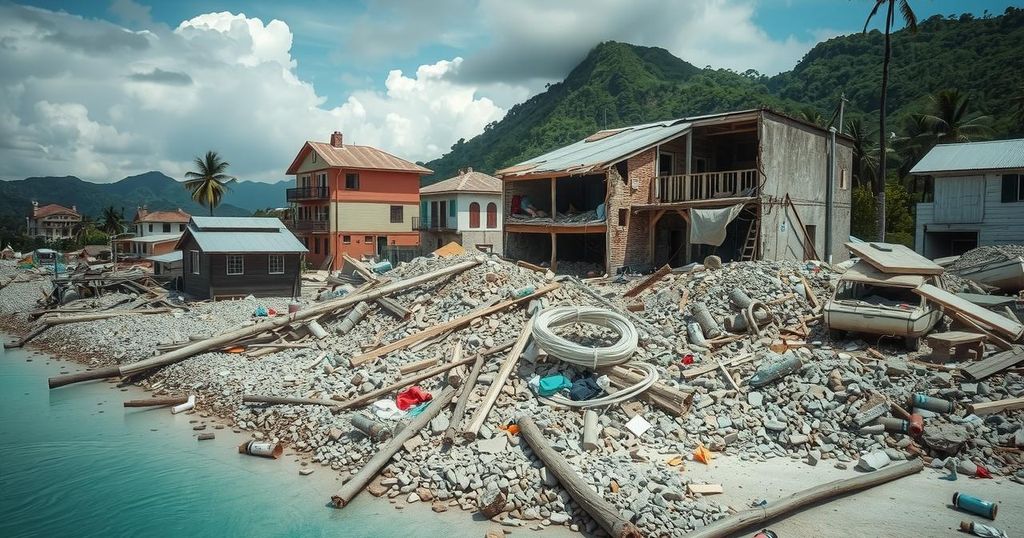World news
AL - JAMARAT, AMERICA, ASIA, BUSH SR, CIA, CONGRESS, DISPLACEMENT, GEORGE HW BUSH, GOVERNMENT RESPONSE, HAITI, HUSSEIN, KUWAIT, NATURAL DISASTER, NATURAL DISASTERS, NORTH AMERICA, OR, PORT - AU - PRINCE, RAKE, SADDAM HUSSEIN, UNION OF INDIA, US CONGRESS, WORLD NEWS
Michael Grant
0 Comments
January 12: Historical Moments from Haiti Earthquake to Indian Farm Laws
January 12 has seen significant historical events, including the 2010 Haiti earthquake that resulted in over 300,000 deaths, the U.S. Congress authorizing military action against Iraq in 1991, the Hajj stampede in 2006, and the Supreme Court of India’s 2021 stay on controversial farm laws amid farmer protests.
January 12 marks the anniversary of significant historical events, including the devastating Haiti earthquake in 2010, which claimed over 300,000 lives, and the U.S. Congress’s authorization of military action in Iraq in 1991. On the same day in 2006, a tragic stampede during the Hajj pilgrimage in Saudi Arabia resulted in over 300 fatalities. Additionally, a landmark Supreme Court ruling in 2021 temporarily halted contentious agricultural laws in India, responding to widespread protests by farmers.
The 2010 earthquake struck Haiti with catastrophic impact, centered approximately 25 kilometers from Port-au-Prince, registering a magnitude of 7.0 on the Richter scale. This calamity left around three million individuals affected, with homelessness affecting more than one million. Despite the international humanitarian efforts that followed, Haiti has struggled to recover fully in the years since this disaster.
The resolution by the U.S. Congress in 1991 authorized President George H.W. Bush to engage in military actions against Iraq following its invasion of Kuwait. The decisive vote of 250-183 underscored the urgency felt by lawmakers and culminated in a swift military campaign. This operation not only liberated Kuwait but also set a precedent for a new era of televised warfare.
In 2006, an unfortunate incident during the Hajj pilgrimage at Mina resulted in the deaths of more than 300 pilgrims, despite safety measures put in place. The tragedy highlighted ongoing challenges in crowd management during the religious event, as fallen luggage contributed to chaos during the critical stoning ritual.
On January 12, 2021, in response to significant protests against the central government’s new farm laws, the Supreme Court of India issued a stay, indicating a willingness to mediate between farmers and the government. Chief Justice S.A. Bobde expressed hope for establishing a committee aimed at addressing the grievances effectively, fostering an environment for constructive dialogue, albeit the farmers later opted out of the discussions.
Such events on January 12 throughout history have shaped the geopolitical landscape, illustrating a continuum of crises and confrontations that demand international attention and response.
January 12 has been pivotal in history, witnessing events that have led to significant global ramifications. The catastrophic earthquake in Haiti drew international scrutiny towards disaster response and recovery efforts, while the authorization of military actions in Iraq established a blueprint for future U.S. interventionist policies. The Hajj incident raised questions about the management of mass gatherings, and the agricultural laws in India demonstrate the ongoing struggle between government policy and agricultural advocacy. Each of these incidents reflects broader themes of human vulnerability and the impact of governance in crisis situations.
January 12 has borne witness to profound historical moments, including natural disasters, military conflicts, and humanitarian crises. The Haiti earthquake serves as a reminder of the devastating effects of natural calamities and the challenges in recovery, while the military action against Iraq marks a significant turn in U.S. foreign policy. Meanwhile, the Hajj tragedy underscores the complexities of managing large-scale events, and the Indian farmers’ protests highlight the critical dialogue between the state and its citizens. These events remind us of the ongoing need for thoughtful intervention and collective action in addressing human crises.
Original Source: www.firstpost.com




Post Comment